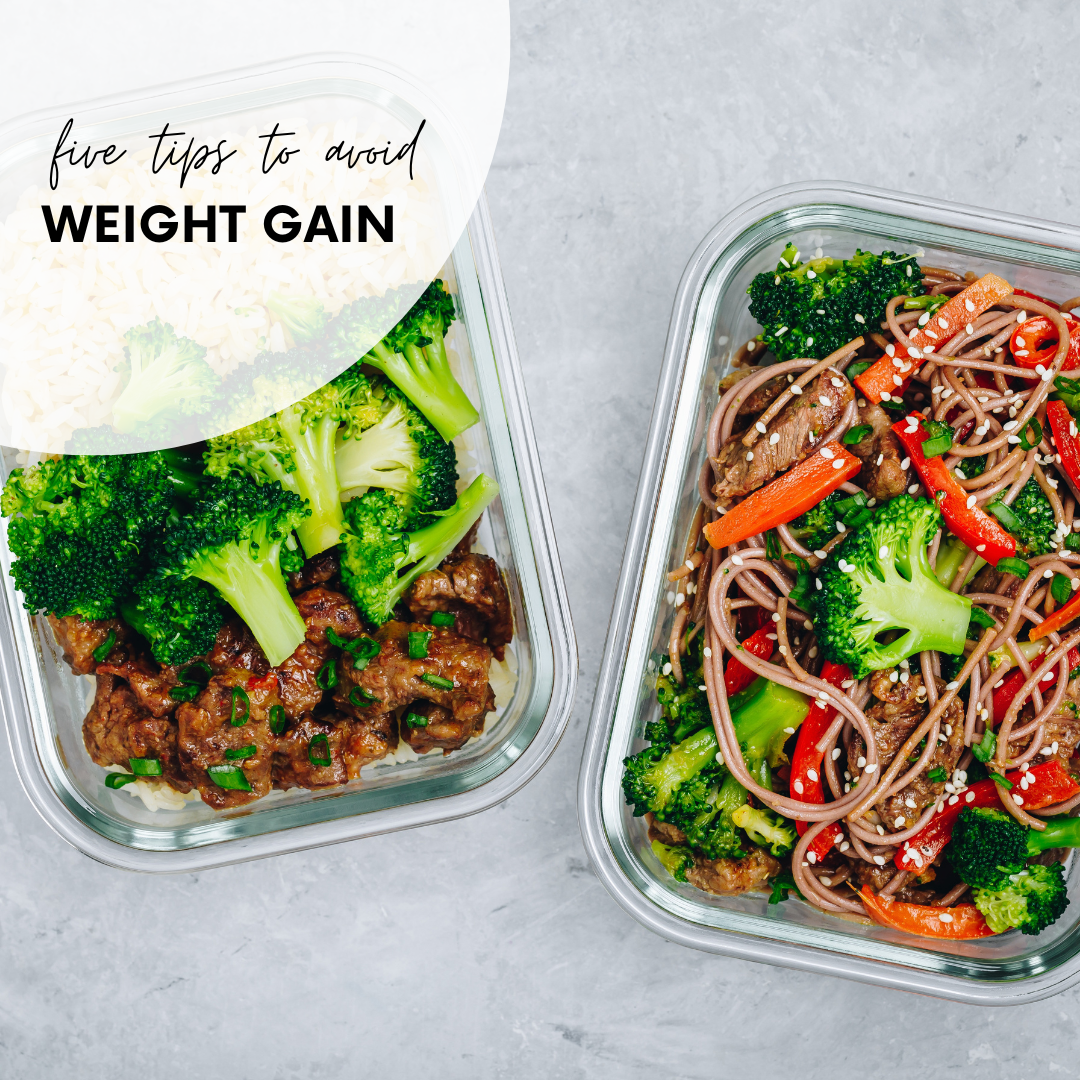As we age, a shift in hormones affects our metabolism and our ability to build lean muscle mass, all of which can make it hard to maintain weight. A prime example of this is menopause. These factors, can affect our weight even before we take into account a change in lifestyle such as working full time and not having enough time to exercise or eat well.
Here I am sharing 5 things you can do today to help stop the weight gain creep and keep you on track with your weight.
Watch the fat
Healthy fats are an important part of the diet, but from a weight perspective they contain more calories per gram compared to protein and carbohydrates. This means, it is very easy to overdo fats from a calorie perspective. By way of example, if you are making a salad and it contains avocado, nuts, seeds, olive oil dressing, feta cheese and chicken, there are a lot of fats in this one dish, which being a salad, is often considered a “diet” meal. If seeking to lose weight or avoid weight gain creep, instead, aside from your protein choice, pick 1 fat to have in salads or a mix of fats which equal approx. 20g or 1 tbsp. of that ingredient. Apply this to all of your meals as a very easy way to cut back on calories, without really noticing much difference.
Boost your incidental step count (exercise!)
To lose weight an energy deficit is needed. This can be achieved via diet alone and/or by exercise. If you have hit a plateau and your diet seems pretty lean already, a good kick start can be increasing your incidental exercise and step count. This can be as simple as going for a walk around the block daily and adding 2,000 steps to your usual count. Some other ways to boost your incidental exercise include:
- Getting up every 30min and doing squats or a lap around the office.
- Spending 10-20min on your lunch break walking in green space.
- Choosing a walking catch up with friends rather than sit down lunch, coffee or dinner.
Get a hormone assessment
As mentioned, hormones can play a role in weight gain. The key players are oestrogen, insulin and also thyroid hormones. If you feel like your diet and exercise regime have not changed to warrant any weight gain, it may help to head to your GP for a blood test to see if there are any underlying issues with your hormones.
Shorten your eating hours
Intermittent fasting does not suit everyone and that is totally fine. What I do recommend is leaving at least a 12hour gap with no food between dinner and breakfast. If you aren’t already doing this, try it and see if it makes a difference. This is also a good way to limit excess calorie consumption post dinner, something that a lot of people do out of habit.
Give “volume eating” a go!
If you feel like you are constantly on a diet…which doesn’t work… and always left hungry, give volume eating a go. Volume eating means filling your plate with low calorie foods such as veggies, whilst also enjoying more energy dense foods. For example:
- if have spaghetti Bolognese for dinner, use ½ spaghetti noodles and ½ zucchini noodles.
- when having a curry add a heap of veggies such as cauliflower, carrot, zucchini, broccoli, eggplant etc and consume less rice and meat – the same goes for stir-fry’s.
- for lunch try an open sandwich topped with lots of salad.
- Have a veggie soup pre-dinner to make you feel fuller with less dinner.
